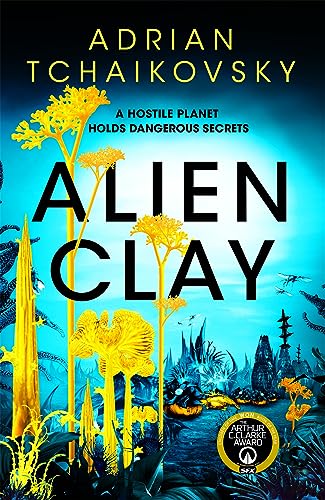
Alien Clay is a book about politics as much as it is about aliens.
It begins as Professor Arton Daghdev plummets at speed to the ground of the planet Kiln, thrown from the latest ship bearing new workers. He’s been exiled due to political activism, now condemned to live out the rest of his life under a new sky, where strange creatures roam outside the safety of humanity’s dome.
It’s a wry first-person tale from a scared and intrigued narrator. As desperate as Daghdev is to learn more about life on Kiln – the only known planet that might harbour intelligent life – he’s also scared of being beaten to death by the superiors there, or worse. What follows is a prison story, to begin with. He doesn’t know who to trust or who trusts him. He’s constantly asking questions. Will he get beaten if the commandant asks to see him (yes)? Will previous allies ever trust him again (maybe)? Can a rebellion ever succeed (wait and see)?
The problem is, the people in charge at Kiln don’t want to get truly up close and personal with this alien world until they fully understand it. Nor are they ready for the truth if it doesn’t align to tidy expectations. Anyone with an opinion who differs from theirs is in danger. Including Daghdev. Eventually his opinions land him ‘outside’ where he finally gets to properly experience the alien clay (so to speak) that makes up the nature of Kiln. The things/individuals/monsters he encounters are scary, curious, and yet so believable in the world the author creates.
After all, Tchaikovsky is an expert at writing wondrous worlds, and Kiln is no different.
I was lucky enough to see him at a book signing shortly before the release of this title and it was fascinating to get an insight into what makes him tick, and how he enjoys looking at humanity through SF (which is exactly why I love SF as a genre so much).
This isn’t a light read, but it is a well-thought-out, compelling one that’s very relevant for today. The ending was both satisfying and a tiny bit disturbing – in a good way!
Share with your Friends: